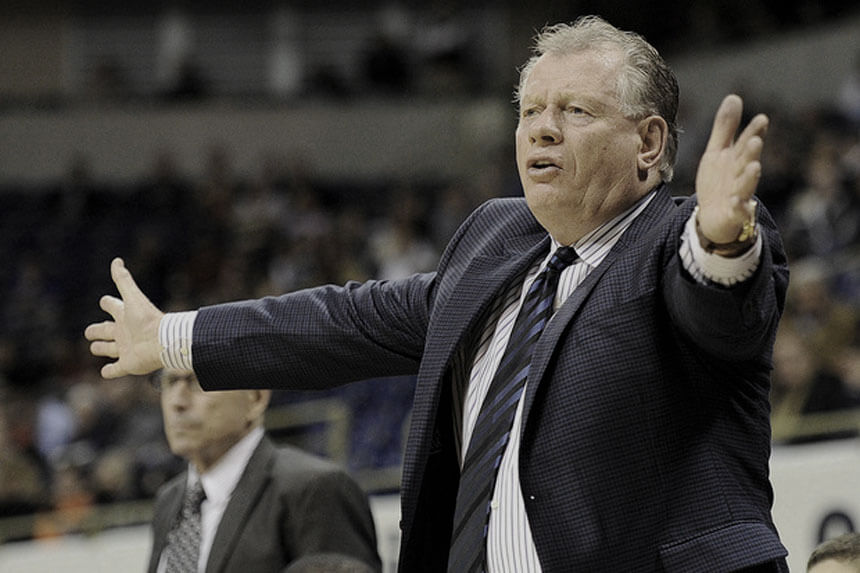Max Good an American basketball coach has built one of the most diverse and successful coaching careers in modern basketball history. Born July 16, 1941, in Maine, Good has accumulated over 600 career victories across multiple levels, from high school to NCAA Division I. His coaching journey spans more than four decades and includes prep-school dominance, program turnarounds, and mentoring future NBA stars. As a veteran coach who embodies the essence of a basketball mentor, Good represents the evolution from the traditional meaning of coach—originally derived from the Hungarian “kocsi” meaning a vehicle that transports—to the modern athletic instructor who guides player development.
Early Life and Coaching Beginnings
Max Good grew up in Monticello, Maine, and attended Gardiner Area High School before spending a prep year at Maine Central Institute. He later attended Transylvania University in Kentucky, where he played under coach Lee Rose, and earned his master’s degree from Eastern Kentucky University. This educational foundation shaped his coaching philosophy that would later distinguish him within the coaching staff hierarchy at every institution.
Good began his coaching career at Madison High School in Richmond, Kentucky, in 1970. He served as junior varsity trainer for three seasons before taking over the varsity program. His 1975 team finished 23-6 and earned recognition as a top ten team in Kentucky. This early success set the foundation for his approach as both court strategist and developmental mentor. After six years at Madison High, Good joined Eastern Kentucky University as an assistant coach for five seasons from 1976 to 1981.
Prep-School Dominance at Maine Central Institute
Good’s most remarkable achievement came during his decade at Maine Central Institute from 1989 to 1999, where he established himself as more than just a college basketball coach—he became a program builder. At MCI, Good compiled a 275-30 record over 10 seasons, winning 90.2 percent of his games and capturing five New England Prep School Athletic Conference championships.
The numbers tell an incredible story of sustained excellence that represents rare attributes in modern NCAA basketball. Good’s MCI teams went undefeated three times: 26-0 in 1989-90, 24-0 in 1990-91, and 35-0 in 1997-98. Perhaps most impressive was the program’s 79-game winning streak that stretched from 1989 to 1992. Ten of Good’s MCI players went on to play in the NBA, including future two-time All-Star Caron Butler, who joined MCI for the 1998-99 season. Dozens more played NCAA Division I basketball, with 54 of 60 players successfully boosting their SAT scores to qualify for Division I programs.
Good’s approach at MCI combined tough love with genuine care for his players’ academic and athletic development. Butler later said, “I consider (Good) family. He’s the pops I never had. I owe him.” The prep-school coaching environment allowed Good to focus on both basketball skills and life lessons, preparing young men for the challenges of Division I athletics.
College Program Turnarounds and Rebuilding Success
Throughout his college coaching career, Good demonstrated exceptional ability as a turnaround specialist who could rebuild struggling programs across multiple universities. His approach combined strategic game planning with intensive player development, creating sustainable success at every stop.
Eastern Kentucky University
Before his MCI success, Good proved his rebuilding skills at Eastern Kentucky University, where he served as head coach from 1981 to 1989. Good compiled a 96-129 record but earned Ohio Valley Conference Coach of the Year honors in 1987 after leading the Colonels to a 19-11 record.
Bryant University Transformation
Good’s most successful program turnaround came at Bryant University, where his game strategy transformed a failing program. When Good was named head coach at Bryant in 2001, he inherited a program that had suffered four straight losing seasons. He quickly transformed the Bulldogs into a Division II powerhouse. Over seven seasons, Good led Bryant to a 132-86 record, earning the program’s first NCAA tournament berth in 24 years in 2004.
The Bryant success included remarkable achievements that demonstrated common attributes of championship programs: five straight NCAA Division II Sweet 16 appearances and a runner-up finish in the 2005 national championship game. In 2004, Good led the Bulldogs to 23 wins, and by his fourth year, they posted a 25-9 record. His work at Bryant earned him NE-10 Division II Coach of the Year honors in 2003.
Loyola Marymount Achievements
At Loyola Marymount University, Good again inherited a struggling basketball program in 2008. After leading the Lions to an 18-15 overall record and 9-7 in conference play, Good was named West Coast Conference Coach of the Year for the 2009-10 season. During his tenure at LMU, Good accomplished numerous firsts for the program since their Elite Eight appearance in 1990, including two 20-win seasons and a postseason victory.
Current Leadership Role at UNLV
Max Good is currently in his second season as Special Assistant to the Head Coach for the UNLV men’s basketball program. This role represents a return to Las Vegas, where Good previously served as an assistant coach and interim head coach. Good spent the 2000-01 season as interim head coach at UNLV after Bill Bayno was dismissed, posting a 13-9 record with the Runnin’ Rebels.
His current position allows Good to share his decades of experience as a seasoned mentor with younger coaches and players. The role focuses on basketball leadership, player development, and academic support. As a sports coach who has witnessed the evolution of the game, Good’s experience in program turnarounds and player mentoring makes him valuable in an advisory capacity. At 84 years old, this basketball instructor continues contributing to college basketball while supporting his wife Phyllis, the reason he resigned from his final head coaching position at Pratt Community College in 2017.
Career Statistics and Hall of Fame Recognition
Good’s overall NCAA Division I and II coaching record stands at 319-340 (.484), but this doesn’t reflect his complete coaching success. When including his prep-school achievements, Good has accumulated more than 600 career victories across all levels, establishing himself as a court mentor whose impact transcends traditional win-loss statistics.
Coaching Records and Awards
His coaching achievements include conference Coach of the Year honors at three different levels: Ohio Valley Conference (1987), Northeast-10 Division II (2003), and West Coast Conference (2012). In 2019, Good was inducted into the Maine Basketball Hall of Fame, with Caron Butler returning to Maine to present his former coach. He is also a member of the New England Basketball Hall of Fame.
Career Highlights
Career highlights include:
- 275-30 record at Maine Central Institute (90.2% win-loss record)
- Five New England Prep School championships
- Three undefeated seasons
- 79-game winning streak
- NCAA Division II national championship game appearance (2005)
- Mentored 10 future NBA players
Good’s career represents the evolution of basketball coaching over five decades, contrasting sharply with the limited perspective of a typical athlete focused solely on playing. His success spans from the fundamental teaching required in high school and prep school basketball to the complex program management needed at the Division I level. The consistency of his coaching methods—demanding excellence while genuinely caring for players—has remained constant throughout his journey as an exemplary basketball instructor.
Bottom line: Max Good an American basketball coach has demonstrated remarkable adaptability and success across multiple levels of basketball. His 90% win rate at Maine Central Institute, combined with his ability to turn around struggling college programs, establishes him as one of the most accomplished coaches of his generation. His current role at UNLV allows him to continue contributing his expertise while mentoring the next generation of coaches and players.











